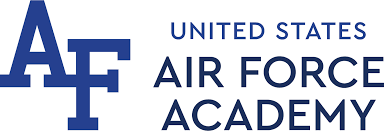Sleep and Leadership in a Military Context
DOI:
https://doi.org/10.58315/jcld.v11.303Keywords:
Sleep, Fatigue, LeadershipAbstract
Sleep can have a profound impact on leadership and overall mission effectiveness. This narrative review summarizes literature related to sleep and leadership, and demonstrates the importance of both leader and subordinate sleep. Evidence is provided for the general lack of sleep among military members, further demonstrating the relevance of this topic. Practical tools are then provided that may aid leaders in improving the sleep and effectiveness of their respective organizations.
Downloads
References
Adler, A. B., Bliese, P. D., LoPresti, M. L., McDonald, J. L., & Merrill, J. C. (2021). Sleep leadership in the army: A group randomized trial. Sleep Health, 7(1), 24–30. https://doi.org/10.1016/j.sleh.2020.06.001
Andrews, C. H. (2004). The relationship between sleep regimen and performance in United States Navy recruits (Doctoral dissertation). Naval Postgraduate School.
Banks, S., & Dinges, D. F. (2007). Behavioral and physiological consequences of sleep restriction. Journal of Clinical Sleep Medicine, 3(5), 519–528. https://doi.org/10.5664/jcsm.26918
Barnes, C. M., Guarana, C. L., Nauman, S., & Kong, D. T. (2016). Too tired to inspire or be inspired: Sleep deprivation and charismatic leadership. Journal of Applied Psychology, 101(8), 1191. https://doi.org/10.1037/apl0000123
Consensus Conference Panel, Watson, N. F., Badr, M. S., Belenky, G., Bliwise, D. L., Buxton, O. M., Buysse, D., Dinges, D. F., Gangwisch, J., Grandner, M. A., Kushida, C., Malhotra, R. K., Martin, J. L., Patel, S. R., Quan, S. F., & Tasali, E. (2015). Recommended amount of sleep for a healthy adult: A joint consensus statement of the American Academy of Sleep Medicine and Sleep Research Society. Journal of Clinical Sleep Medicine, 11(6), 591–592. https://doi.org/10.5664/jcsm.4758
Gailliot, M. T., Schmeichel, B. J., & Baumeister, R. F. (2006). Self-regulatory processes defend against the threat of death: Effects of self-control depletion and trait self-control on thoughts and fears of dying. Journal of Personality and Social Psychology, 91(1), 49. https://doi.org/10.1037/0022-3514.91.1.49
Graen, G. B., & Scandura, T. A. (1987). Toward a psychology of dyadic organizing. Research in Organizational Behavior, 9, 175–208.
Guarana, C. L., & Barnes, C. M. (2017). Lack of sleep and the development of leader-follower relationships over time. Organizational Behavior and Human Decision Processes, 141, 57–73. https://doi.org/10.1016/j.obhdp.2017.04.003
Gujar, N., Yoo, S. S., Hu, P., & Walker, M. P. (2011). Sleep deprivation amplifies reactivity of brain reward networks, biasing the appraisal of positive emotional experiences. Journal of Neuroscience, 31(12), 4466–4474. https://doi.org/10.1523/JNEUROSCI.3220-10.2011
Johnson, S. K. (2009). Do you feel what I feel? Mood contagion and leadership outcomes. The Leadership Quarterly, 20, 814–827. https://doi.org/10.1016/j.leaqua.2009.06.012
Killgore, W. D., Estrada, A., Wildzunas, R. M., & Balkin, T. J. (2008). Sleep and performance measures in soldiers undergoing military relevant training (Report No. ADA505791). Silver Springs, MD: Walter Reed Army Institute of Research.
Matsangas, P., & Shattuck, N. L. (2020). Sleep quality, occupational factors, and psychomotor vigilance performance in the US Navy sailors. Sleep, 43(12), zsaa118. https://doi.org/10.1093/sleep/zsaa118
McClernon, C. K., Matsangas, P., & Shattuck, N. L. (2024). Sleepy and grumpy go hand in hand for US Navy Sailors. Sleep Advances, 5(1), zpae005. https://doi.org/10.1093/sleepadvances/zpae005
McDonald, J. L., Ganulin, M. L., LoPresti, M. L., & Adler, A. B. (2019). Sleep knowledge, goals, and habits in soldiers. Sleep Health, 5(4), 426–428. https://doi.org/10.1016/j.sleh.2019.04.006
Miller, N. L., Dyche, J., Andrews, C. H., & Lucas, T. (2004). Navy boot camp: Test score changes after two hour increase in sleep time. Proceedings of the Association of Professional Sleep Societies.
Miller, N. L., Shattuck, L. G., & Mateangas, P. (2010). Longitudinal study of sleep patterns of United States Military Academy cadets. Sleep, 33(12), 1623–1631. https://doi.org/10.1093/sleep/33.12.1623
Miller, N. L., Tvaryanas, A. P., & Shattuck, L. G. (2012). Accommodating adolescent sleep-wake patterns: The effects of shifting the timing of sleep on training effectiveness. Sleep, 35(8), 1123–1136. https://doi.org/10.5665/sleep.2002
Muraven, M., & Baumeister, R. F. (2000). Self-regulation and depletion of limited resources: Does self-control resemble a muscle? Psychological Bulletin, 126(2), 247. https://doi.org/10.1037/0033-2909.126.2.247
Mysliwiec, V., McGraw, L., Pierce, R., Smith, P., Trapp, B., & Roth, B. J. (2013). Sleep disorders and associated medical comorbidities in active duty military personnel. Sleep, 36(2), 167–174. https://doi.org/10.5665/sleep.2364
Nahrgang, J. D., Morgeson, F. P., & Ilies, R. (2009). The development of leader–member exchanges: Exploring how personality and performance influence leader and member relationships over time. Organizational Behavior and Human Decision Processes, 108(2), 256–266. https://doi.org/10.1016/j.obhdp.2008.09.002
Olsen, O. K., Pallesen, S., Torsheim, T., & Espevik, R. (2016). The effect of sleep deprivation on leadership behaviour in military officers: An experimental study. Journal of Sleep Research, 25(6), 683–689. https://doi.org/10.1111/jsr.12431
Seelig, A. D., Jacobson, I. G., Donoho, C. J., Trone, D. W., Crum-Cianflone, N. F., & Balkin, T. J. (2016). Sleep and health resilience metrics in a large military cohort. Sleep, 39(5), 1111–1120. https://doi.org/10.5665/sleep.5766
Van Dongen, H. P., Maislin, G., Mullington, J. M., & Dinges, D. F. (2003). The cumulative cost of additional wakefulness: Dose-response effects on neurobehavioral functions and sleep physiology from chronic sleep restriction and total sleep deprivation. Sleep, 26(2), 117–126. https://doi.org/10.1093/sleep/26.2.117
Walker, M. (2017). Why we sleep: Unlocking the power of sleep and dreams. Simon and Schuster.
Published
How to Cite
Issue
Section
License
Copyright (c) 2024 Christopher McClernon

This work is licensed under a Creative Commons Attribution 4.0 International License.
Authors contributing to Journal of Character & Leadership Development agree to publish their articles under the terms of the Creative Commons CC-BY 4.0 License. Authors retain copyright of their work, with first publication rights granted to the JCLD.



